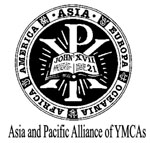|

1. Ecumenical Forum for Peace, Reunification and Development Cooperation on the Korean Peninsula
2. ICF held a Thematic Workshop in Jayapura
3. Mr. Steve Loh, new NGS of Singapore
|
|

Sep 1-2: 4th APAY Youth Assembly, Olympic Memorial Centre, Tokyo, Japan
Sep 2-6: 20th General Assembly, Tozanso, Gotemba, Japan
|
|
Ecumenical Forum for Peace, Reunification and Development Cooperation on the Korean Peninsula
2019 Ecumenical Forum for Peace, Reunification and Development Cooperation on the Korean Peninsula was held in Bangkok, Thailand on 10 ~ 12 July 2019 with a theme “Seek Peace and Pursue It” (Ps 34:14), participated by 46 ecumenical leaders not only from the Korean Peninsula - NCC-Korea, YMCA of Korea, Korea YWCA as well as four delegates from the Korea Christian Federation (KCF, DPRK) – but also from wider ecumenical circle around the world. The forum was organized jointly, by WCC and NCC-K, where Nam Boo-Won, GS of APAY, was also invited.
The three-day meeting included KCF-NCCK bilateral meeting on the first day. The 2nd day’s forum started with an opening worship/prayer, followed by greetings from WCC and opening statements from NCC-K and KCF. Thereafter, a Skype conversation with WCC General Secretary Rev. Dr. Olav Fykse TVEIT on the current issues pertaining to Korean Peninsula peace building. In the afternoon, time was allocated for sharing Atlanta Roundtable for Peace on the Korean Peninsula held on 9-11 November 2018 as well as a report on DMZ Human Chain and Peace Treaty Campaign by NCC-K. This was followed by a Panel discussion on developments in the search for peace and reunification on the Korean Peninsula, as well as on sanctions regime and its impact on dialogue for peace, diaconal ministry and development cooperation on the Korean Peninsula.
The third day program began with a re-cap of previous day’s proceedings. Then the forum was divided into groups to brainstorm on next steps/ecumenical initiatives to support dialogue for peace and reunification on the Korean Peninsula. After each group reporting back on their discussion outcome, a plenary was held to discuss how world ecumenical circle could recommit to ecumenical accompaniment for peace, reunification and development cooperation on the Korean Peninsula. The Forum ended with a closing worship, followed by the adoption of a Communique based on the outcome of the discussions and brainstorming during the three-day forum. The following is some of the statements drawn from the Communique:
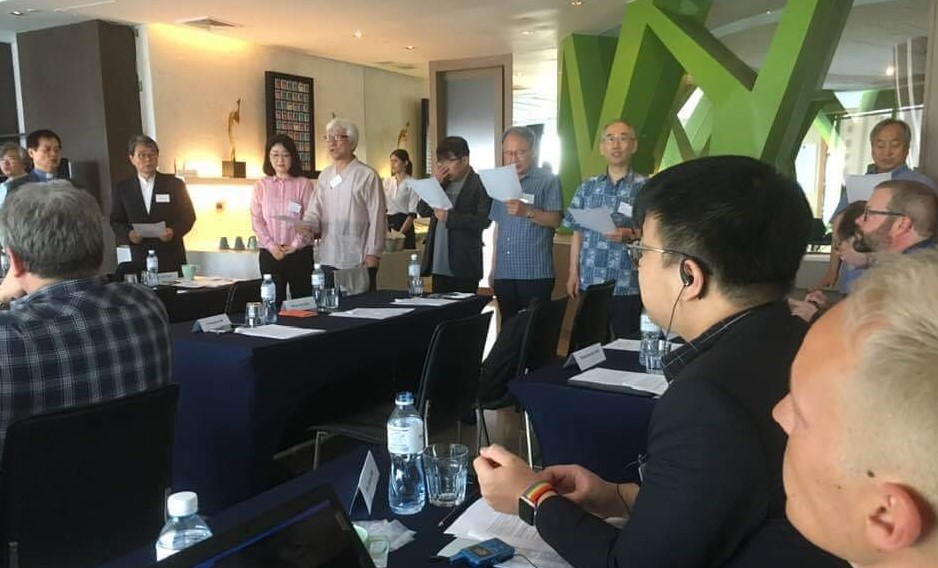 |
| ↑ Opening worship of the Forum |
|
|
“The EFK reaffirms its commitment to the vision of peace and reunification on the Korean Peninsula, and to the realization of the joint inter-Korean Panmunjom Declaration as the framework for achieving peace. As stated in the Panmunjom Declaration, there must be no more war on the Korean Peninsula. There must be an end to the longstanding division and confrontation that have afflicted the region. A formal end to the Korean War must be declared, and the Armistice Agreement replaced as soon as possible by a peace treaty, and a permanent and solid peace regime established. The objective of a nuclear-free Korean Peninsula must be pursued, within the larger objective of a nuclear-free world. We reaffirm the principles of self-determination for the Korean people and inter-Korean leadership for the peace building.
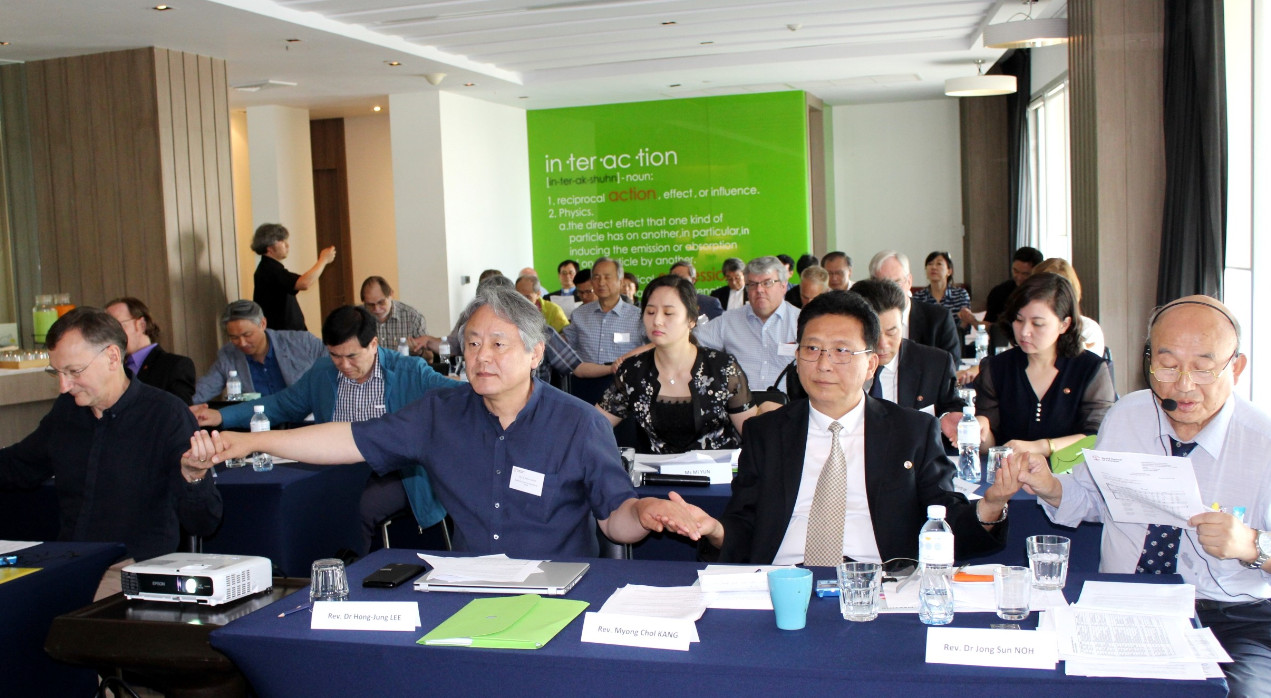 |
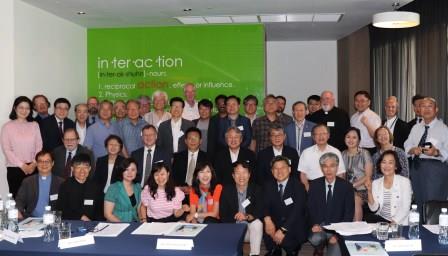 |
| ↑ Singing hymns together expressing solidarity |
↑ Participants of the Ecumenical Forum |
We fully respect the desire of the Democratic People’s Republic of Korea (North) and the Republic of Korea (South) to thoroughly maintain their national self-reliance stance in the process of implementing the Panmunjom Declaration and September Pyongyang Joint Declaration, and we heartily support this desire. For the purpose of fostering the positive atmosphere of the improving relations and letting this relationship shine as a meaningful result of peace and reunification, it is important to put an end to policies of dependence on foreign forces, marring the spirit of independence and encroaching upon the common interests of the nation.
- We renew our commitment to promoting peace and reunification on the Korean Peninsula, and oppose the anti-reunification and anti-peace forces that increase the tension on the Korean Peninsula and run counter to the improvement of North-South relations. We also denounce the joint military exercises and oppose them as a key factor that keeps the situation tense on and around the Korean Peninsula. Cold War inspired forces, which continue to solidify the division of the Korean Peninsula, should stop their anti-reunification and anti-peace activities that are struggling to bring inter-Korean relations back to those in the period before the publication of the Panmunjom Declaration, challenging the aspiration of the Korean nation and the expectations of the international community.
- We call for the full implementation of the DPRK-US Joint Statement in Singapore. We note the positive steps taken by the DPRK and call on the US to follow suit in full implementation of the joint US-DPRK Statement. We commit to undertaking solidarity actions in support thereof.
- We call for the withdrawal of the US policy of hostility against the North, and for an end to US, UN and other sanctions and policies of ‘maximum pressure’. We call for the immediate reopening of the Kaesong Industrial Complex and Mt. Kumgang tourism, and the promotion of people to people exchanges and cooperation.
- On the occasion of the 70th anniversary of the Korean War in 2020, we will support reconciliation worship services and peace building events in Washington DC and elsewhere, and pledge to work together for peace and security on the Korean Peninsula and in the region by ending the Korean War and establishing a Korean peace treaty.
The economic sanctions and related policies (including travel restrictions) that continue to be imposed against the DPRK without relaxation poison the political environment for progress towards peace, seriously impede possibilities for people-to-people encounter – especially between North and South Koreans and between North Koreans and US Americans, and increasingly obstruct humanitarian access and diaconal cooperation. We therefore will explore ways in which we can raise awareness of the negative impacts of sanctions, and scale up advocacy for their relaxation and removal…We continue to uphold in prayer and to accompany in solidarity Korean Christians, and actively seek alliances with all organizations and people of good will who seek peace on the Korean Peninsula, in the region, and the world.”
(If you are interested to get a full Communique, kindly contact APAY office office@asiapacificymca.org )
~ Nam Boo Won, General Secretary
ICF held a Thematic Workshop in Jayapura
On July 20-25, 2019, ICF held a thematic workshop on peacebuilding and nonviolent communication in Rumah Retret Savelberg, Waena, Jayapura. Rina Yanike Krebru, an SoP 2018 alumna, did the hosting responsibilities including the arrangement of the venue and the community visit. Due to the distance of Papua from other Indonesian island-provinces, some participants could not come. Of the eleven who registered, ten participants finished the workshop. Out of ten, only one was Muslim, and the rest were Christians. There were 5 males and 5 females.
As it is now a standard, an ICF activity starts with an opening ritual that reflected the culture of Papua. Then, an orientation followed that included the introduction of the history and development of YMCA, the work of APAY and the program of its project, the Interfaith Cooperation Forum. The next activity as a workshop on what educators call “KWHL chart” where participants share their answers to the following: “What I already Know,” “What I Want to find out,” “How I can Learn More,” and “What I Have Learned.” The participants went through a workshop of what they have already known about the situations of peace and unpeace in their context. This was followed by a whole day workshop on Understanding Conflict and Conflict Analysis as an important step in peacebuilding. A whole day was also spent in understanding the principles of Nonviolent Communication and doing exercises in NVC. To explore and observe how to make use of what they have learned during the first three days of the thematic workshop, the participants, along with some church project staff, went to a village in the Keerom Regency. It was a two-and-a-half hours drive from Waena, Jayapura. The village was in the middle of a large palm oil plantation that is no longer productive, and the people have more problems other than unemployment.
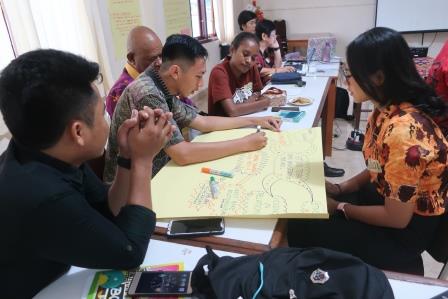 |
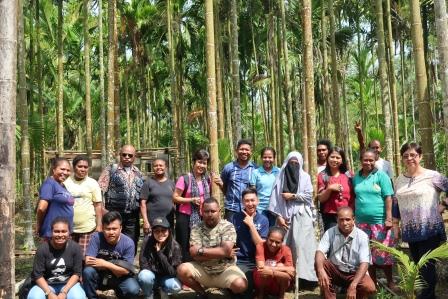 |
| ↑ Workshop on identifying local unpeace situation |
↑ Group photo with the local community of Keerom during the community exposure |
During the debriefing on the last day, the participants shared their reflections on what they have observed and expressed the challenges they have seen in the village. The closing ceremony was graced by the General Secretary of Papua YMCA, Dr. Ruflus, who assisted in the giving of certificates.
The new ICF Program Officer, Baidido M. Saganding, facilitated the first day sessions on the KWHL and exploring the situation of peace/unpeace in Jayapura. She also served as the documenter throughout the workshop period. The ICF Coordinator, Muriel Orevillo-Montenegro presented the history of YMCA, the work of APAY and the program of ICF, while NGS Retha Andoea of Indonesia YMCA presented the work of YMCA in Indonesia. The ICF Coordinator facilitated the two-day sessions on Peacebuilding and Nonviolent Communication. NGS Retha Andoea of Indonesia YMCA facilitated the debriefing sessions, with Rina’s assistance in translations. Throughout the week, NGS Retha served as the main translator because very few among the participants could speak English. The experience in Jayapura was both an enjoyable teaching-learning experience for all of us.
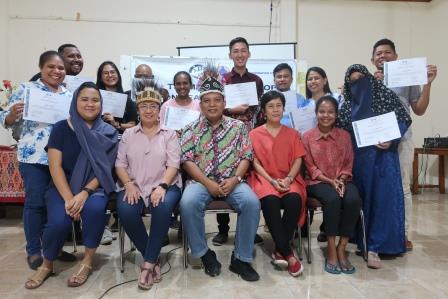 |
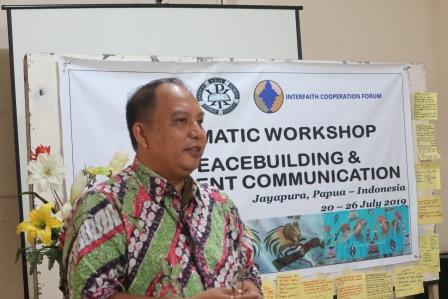 |
| ↑ Group photo of the participants with APAY-ICF staff, facilitators, GS of YMCA Papua & NGS of YMCA Indonesia |
↑ Dr. Ruflus, GS of YMCA Papua on his closing message |
~ Muriel Orevillo-Montenegro, Coordinator of ICF
Mr. Steve Loh, new NGS of Singapore
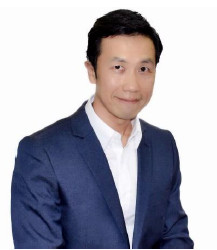 It is our pleasure to welcome Mr. Steve Loh as the new National General Secretary of the National Council of YMCAs of Singapore. Currently, he holds the position of the General Secretary & CEO of YMCA of Singapore since 15 August 2018. It is our pleasure to welcome Mr. Steve Loh as the new National General Secretary of the National Council of YMCAs of Singapore. Currently, he holds the position of the General Secretary & CEO of YMCA of Singapore since 15 August 2018.
Mr. Loh brings with him a unique blend of management, entrepreneurial and leadership experience gained from global missions, social service as well as from the media industry. He has garnered substantial expertise in managing operations, instituting governance and conducting business restructuring, while emphasising the need to value and develop people.
Mr. Loh graduated from the University of Arizona with a Bachelor of Arts, majoring in Journalism & Political Science. Being an active sportsman, he was a member of the university rugby team which won the regional championships.
He is married with two children and attends St John’s St Margaret’s Anglican Church since 1976, where he serves as a Home Cell Group Pastor since 2005.
APAY welcomes Mr. Loh to be a part of the APAY family and looks forward for strengthening mutual relationship between the APAY and the Y movement in Singapore through his dynamic leadership.
|
